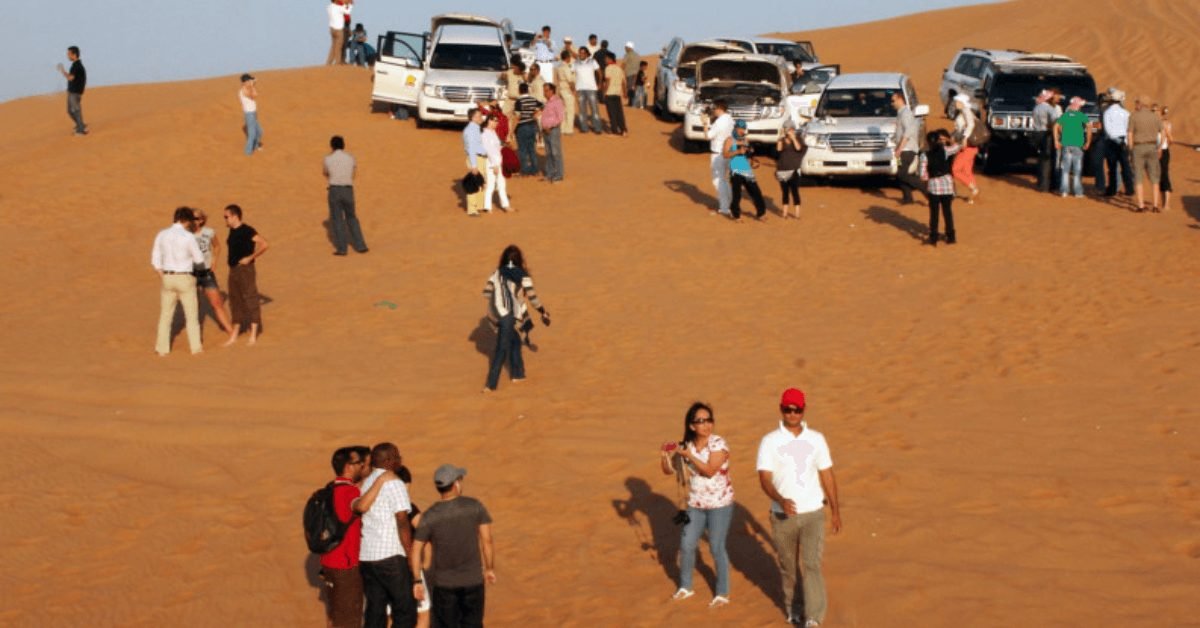Imagine traversing the vast and captivating dunes of a Dubai desert safari, relishing the thrilling experiences it offers. Amidst the beauty and excitement, it is crucial to acknowledge the importance of first aid in ensuring a safe and enjoyable desert adventure. Whether you’re a visitor or a guide, understanding how to manage first aid effectively is essential. In this article, we will explore the ins and outs of first aid in a Dubai desert safari and equip you with the knowledge needed to handle emergencies confidently.
Understanding First Aid
First aid encompasses the immediate medical assistance given to an injured or ill person until professional medical help arrives. Its purpose is to preserve life, prevent the condition from worsening, and promote recovery. In the context of a Dubai desert safari, first aid plays a vital role in addressing common injuries and providing relief until the individual can be transported to a medical facility.
First Aid Preparation for a Dubai Desert Safari
Prioritizing safety begins with thorough preparation. In the unique environment of a desert safari, it is essential to assess the risks and potential injuries. Sunburns and heatstroke, dehydration and heat exhaustion, sand and dust-related injuries, snake or scorpion bites, and sprains or fractures are common occurrences. By identifying these risks, appropriate preventive measures and treatment plans can be put in place.
One of the key preparations for a desert safari is assembling a comprehensive first aid kit. The kit should include essentials such as bandages, antiseptics, pain relievers, sterile dressings, scissors, tweezers, and other relevant supplies. It is crucial to ensure the kit is well-stocked and readily accessible throughout the safari.
Common Injuries in a Dubai Desert Safari
While embarking on a desert safari, it is essential to be aware of the potential injuries that can occur. Sunburns and heatstroke are prevalent due to prolonged exposure to the scorching desert sun. Dehydration and heat exhaustion can affect individuals, particularly if they fail to consume adequate fluids. Sand and dust-related injuries, such as abrasions and eye irritation, may arise from the unique terrain. Moreover, encounters with snakes or scorpions can result in bites, requiring immediate attention. Lastly, sprains and fractures can occur due to uneven terrain or adventurous activities.
First Aid Techniques for Desert Safari Injuries
Addressing the specific injuries encountered in a Dubai desert safari requires appropriate first aid techniques. Sunburns and heat-related ailments can be managed by providing shade, applying cool compresses, and using appropriate ointments. Rehydration methods, such as oral rehydration salts and consuming fluids, are essential in combating dehydration and heat exhaustion. For sand and dust-related injuries, gentle cleaning and covering of the affected area can prevent further complications. In the case of snake or scorpion bites, immobilization and immediate medical assistance are crucial. Lastly, sprains and fractures necessitate immobilization using splints or slings until professional help can be sought.
Communication and Emergency Services
Effective communication is vital during a desert safari to ensure timely assistance. It is essential to establish a clear means of communication within the group, including signals or radios. Moreover, knowing emergency contact numbers and the location of the nearest medical facilities can save valuable time during critical situations. Familiarize yourself with the emergency services available in the area and inform the relevant authorities in case of an incident.
First Aid Training for Desert Safari Guides
In the realm of desert safari, guides bear significant responsibility for the safety and well-being of their guests. Therefore, first-aid training for guides is essential. Equipped with basic first aid skills, guides can promptly respond to injuries and provide immediate assistance until professional help arrives. First aid training also empowers guides to educate visitors on preventive measures and safety guidelines, ensuring a safer overall experience.
Challenges and Precautions in Desert First Aid
Providing first aid in a desert setting comes with unique challenges. Limited access to medical facilities, extreme temperatures, and potential communication difficulties necessitate preparedness and adaptability. It is crucial to take precautions, such as wearing appropriate protective gear, carrying sufficient water supplies, and understanding the signs of heat-related illnesses. By acknowledging these challenges and taking appropriate measures, the risk of accidents and injuries can be significantly mitigated.
Conclusion
When embarking on a Dubai desert safari, prioritizing first aid management is essential for a safe and enjoyable experience. By understanding common injuries, assembling a comprehensive first aid kit, and equipping oneself with the necessary skills, both visitors and guides can navigate emergencies with confidence. Remember, effective communication, awareness of emergency services, and the willingness to adapt to desert-specific challenges are crucial components of managing first aid in the unique environment of a Dubai desert safari.
FAQs
How can I protect myself from the desert sun during a safari?
To protect yourself from the desert sun, wear loose-fitting, lightweight clothing, a wide-brimmed hat, and sunglasses. Apply a broad-spectrum sunscreen with a high SPF, and seek shade whenever possible.
What should I do if I encounter a snake or scorpion in the desert?
If you encounter a snake or scorpion, maintain a safe distance and do not provoke or handle the animal. Immediately notify the authorities or your safari guide for assistance.
Can I drink alcohol during a desert safari?
It is advisable to refrain from consuming alcohol during a desert safari as it can contribute to dehydration and impair judgment, increasing the risk of accidents or injuries.
How can I prevent sand and dust-related injuries?
To prevent sand and dust-related injuries, wear protective eyewear, such as goggles, and cover exposed areas of skin. It is also helpful to use scarves or masks to shield your nose and mouth from blowing sand.
Is it necessary to bring a first aid kit on a desert safari?
Yes, it is crucial to bring a well-stocked first aid kit on a desert safari. It allows you to provide immediate assistance for minor injuries or manage emergencies until professional medical help is available.

